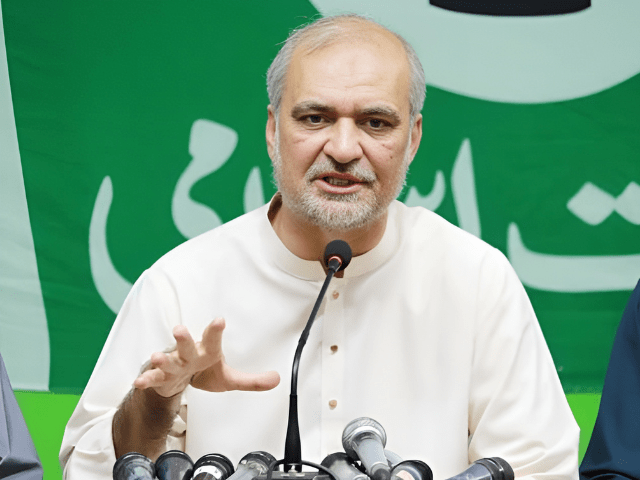Hafiz Naeem pointed to the historical context, asserting that since the establishment of the Zionist state, the Middle East has been ensnared in a cycle of instability and turmoil

By our correspondent
LAHORE: Hafiz Naeem ur Rehman, the Ameer of Jamaat-e-Islami (JI), has strongly condemned Israel’s recent airstrikes on Iranian military sites, framing them as an alarming manifestation of aggression supported by the United States. In a statement shared on social media, he characterized the attacks as reprehensible and indicative of an expansionist agenda pursued by what he described as an illegitimate state. Rehman argued that these actions not only threaten Iran but also pose a grave risk of dragging the entire region into conflict.
Hafiz Naeem pointed to the historical context, asserting that since the establishment of the Zionist state, the Middle East has been ensnared in a cycle of instability and turmoil. His call for unity among Muslim countries comes amid escalating tensions following the Israeli strikes, which were executed in response to a recent missile strike from Iran. Residents of Tehran reported experiencing multiple explosions throughout the night, initially attributed to air defense systems as the city braced for potential fallout from the Israeli attacks.
The Iranian civil aviation authority has since closed the country’s airspace indefinitely, prompting numerous civilian flights to reroute around Tehran. Israel’s military confirmed the strikes, labeling them as “precise” operations targeting critical Iranian military assets. This development has raised the stakes in an already fraught geopolitical landscape, drawing swift international responses.
Saudi Arabia has vocally condemned Israel’s actions, branding them a violation of Iranian sovereignty and a breach of international law. In a statement, the Saudi Foreign Ministry described the early-morning airstrikes as a “serious violation” of Iran’s territorial integrity, reflecting a broader concern over the regional implications of such military engagements. Calls for de-escalation have emerged from the United Arab Emirates (UAE) and Qatar, both stressing the importance of diplomacy in resolving these tensions.
The UAE’s Foreign Ministry underscored the necessity of reducing hostilities to preserve regional stability. In a show of solidarity, Syria’s Foreign Ministry affirmed Iran’s right to protect its territory and citizens amidst this escalating crisis, further complicating the regional dynamics. As the situation develops, the potential for further conflict looms, and the calls for unity among Muslim nations, as articulated by leaders like Hafiz Naeem ur Rehman, resonate in a context marked by a shared apprehension regarding the consequences of Israeli military actions.



